Scientific Advisory Committee on Global Health - Members
Biographies of the Scientific Advisory Committee – Global Health (SAC-GH)
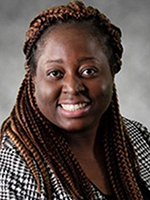 Bukola Salami
Bukola Salami
In July 2023, Dr. Bukola Salami became a Professor in the Cumming School of Medicine, University of Calgary and a research chair in an area relevant to Black and racialized people’s health. Previously, she held the rank of Full Professor in the Faculty of Nursing, University of Alberta. She is the former Director of the Intersections of Gender Signature Area in the Office of the Vice President Research at the University of Alberta (September 2021 to March 2023). Her research program focuses on policies and practices shaping migrant health as well as Black people’s health, immigrant mental health, access to healthcare for immigrant children and health of internally displaced children. She has been involved in over 75 funded studies in this area.
She founded and leads an African migrant child research network of 42 scholars from four continents. In 2020, she founded the Black Youth Mentorship and Leadership Program at the University of Alberta. The program, the first of its kind in Canada, seeks to socially and economically empower Black high school youth to contribute meaningfully to society. Her work has led to the creation of a mental health clinic for Black People in Alberta. Dr. Bukola Salami is an Associate Editor of the Canadian Medical Association Journal (CMAJ) and is on the Editorial Board of Nursing Inquiry and Qualitative Health Research Journal. She is also an advisory board member of the CIHR Institute for Human Development, Child and Youth Health (CIHR-IHDCYH). In 2020, she was recognized by the Sigma Theta Tau International Honor Society International Nurse Researcher Hall of Fame, the highest research award in nursing.
 Tim Evans
Tim Evans
Trained as a physician and economist, Dr. Evans has worked to advance global health equity for over 25 years. He has held senior positions at the World Health Organization, the World Bank, the Rockefeller Foundation and BRAC. In 2019, he joined McGill University as the Inaugural Director and Associate Dean of the School of Population and Global Health (SPGH) and Associate Vice-Principal (Global Policy and Innovation). In the context of the COVID-19 Pandemic, he was named as the Executive Director of Canada’s COVID-19 Immunity Task Force in April 2020.
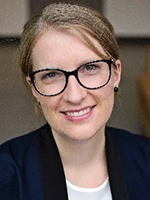 Sherilee Harper
Sherilee Harper
Dr. Sherilee L. Harper is a Canada Research Chair in Climate Change and Health, and an Associate Professor in the School of Public Health at the University of Alberta. Her research investigates associations between weather, environment, and global health in the context of climate change, and she collaborates with global health partners to prioritize climate-related health actions, planning, interventions, and research.
She is a Lead Author on the Intergovernmental Panel on Climate Change (IPCC) Special Report on the Ocean and Cryosphere in a Changing Climate (SROCC); Lead Author on the IPCC’s Sixth Assessment Report (AR6-WG2); Lead Author on Health Canada’s Climate Change and Health Assessment; serves on the Gender Task Group for the IPCC; and serves on the Editorial Board of Epidemiology and Infection.
 John Lavis
John Lavis
John Lavis holds the Canada Research Chair in Evidence-Informed Health Systems. He is the Director of the McMaster Health Forum | Forum+, Co-Lead of Rapid-Improvement Support and Exchange (RISE), Co-Director of the WHO Collaborating Centre for Evidence-Informed Policy, Professor in the Department of Health Evidence and Impact at McMaster University, and Adjunct Professor in the Africa Centre for Evidence at the University of Johannesburg. John supports policymakers and stakeholders to harness research evidence, citizen values and stakeholder insights to strengthen health and social systems and get the right programs, services and products to the people who need them. He holds an MD from Queen’s University, an MSc from the London School of Economics, and a PhD (in Health Policy) from Harvard University.
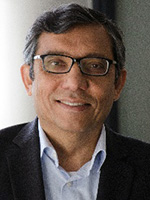 Zulfiqar A. Bhutta
Zulfiqar A. Bhutta
Dr. Zulfiqar A. Bhutta is the Founding Director of the Centre of Excellence in Women and Child Health at the Aga Khan University; the Inaugural Robert Harding Chair in Global Child Health & Co-Director of the SickKids Centre for Global Child Health; and Chairman of The Coalition of Centres in Global Child Health with adjunct professorships at several Schools of Public Health including Johns Hopkins University, Harvard University, Tufts University, the University of Alberta and the London School of Hygiene & Tropical Medicine. Dr. Bhutta leads large research groups in Toronto, Karachi and Nairobi with a special interest in research synthesis, scaling up evidence-based community setting interventions, and implementation of reproductive, maternal, newborn, child and adolescent health interventions in the context of humanitarian settings. As Founding Director, of the Institute for Global Health and Development, he is a leader for health professionals supporting integrated maternal, newborn and child health globally.
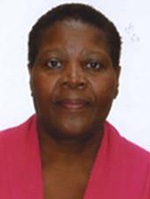 Carol Henry
Carol Henry
Dr. Carol Henry has led multiple large scale, multifaceted, cross disciplinary research projects aimed at improving food security, economic livelihood, and well-being of populations across Sub Sahara Africa, the Caribbean and Canada. Initiatives include a successful international development research program in Ethiopia funded through the Canadian International Food Security Research Fund (CIFSRF), through the International Development Research Centre and Global Affairs Canada. Built on a 20-year partnership between the University of Saskatchewan and Hawassa University, the initiative combined improved agricultural practices with human nutrition programs, focusing on the scaling up of pulse crop innovations for food and nutrition security in southern Ethiopia, reaching more than 70,000 farm households during 2015-18. Knowledge translation occurred through different channels, including participatory research, multidisciplinary collaboration, and media campaign. As part of Ethiopia’s Agriculture Growth Program and Comprehensive African Agriculture Development Plan, the work has had significant impact on national health, women’s empowerment and agricultural policy. In Canada, her work continues to build on lessons learned from these international experiences on improving food security and well-being.
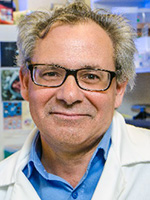 Marc Ouellette
Marc Ouellette
Dr. Marc Ouellette, PhD, is full professor at the Faculty of Medicine of Université Laval, and holder of the Tier 1 Canada Research Chair on Antimicrobial Resistance. He is using ‘omics’ technologies for a better understanding of antimicrobial resistance in the protozoan parasite Leishmania and the bacteria Streptococcus pneumoniae. He has extensively collaborated, trained, and published with researchers from low- and middle-income countries. He has an H index of 77 and received the New Investigator and Scholar Burroughs Wellcome Fund awards in Molecular Parasitology. He is a Fellow of the Royal Society of Canada and of the Canadian Academy of Health Sciences. From 2010-2018 he was the Scientific Director of the Institute of Infection and Immunity of the Canadian Institutes for Health Research (CIHR). He sat on over 20 boards and he is currently on the Board of Directors of the Canadian Foundation for Innovation (CFI).
 Katrina Plamondon
Katrina Plamondon
Dr. Plamondon’s program of research focuses on questions of how to align knowledge, intention, and action for health equity. She is Assistant Professor at the University of British Columbia Okanagan School of Nursing. She is a Canadian woman of Cree, Irish, Quebecois, Jewish and German ancestry. The stories of her family reflect those of twentieth century Canada, of different cultures blending together through marriage and navigating family-level impacts of colonization. Dr. Plamondon’s clinical nursing foundations are in critical care/emergency and street outreach with her research is grounded in knowledge translation with a focus on advancing health equity.
Her projects aim to create new pathways for methodologies of inclusion and considerations of equity- and evidence-informed governance for health in municipalities, community groups, health systems, and educational settings. She has been a member of the Canadian Coalition for Global Health Research since 2004, and currently co-chairs the University Advisory Council, which represents 29 institutional members from across Canada. She was the Principal Investigator for the multi-year Gathering Perspectives Studies that led to the creation of the equity-centred CCGHR Principles for Global Health Research. Her work is contributing to national dialogue about Canada’s role in global health research.
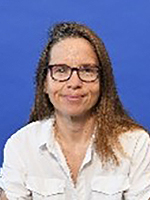 Hélène Carabin
Hélène Carabin
Dr. Hélène Carabin (D.V.M., M.Sc. in veterinary clinical sciences, Ph.D. in epidemiology and biostatistics) is a full professor in the Department of Pathology and Cell Biology of the Faculty of Veterinary Medicine and in the Department of Social and Preventive Medicine at the School of Public Health of the University of Montreal. Dr. Carabin holds the Tier 1 Canada Research Chair in Epidemiology and One Health, and her research program focuses on the use of advanced epidemiological and biostatistical methods to better understand the risk factors and burden of infectious diseases and to evaluate control programs, with an emphasis on diseases of the poorest populations and on zoonoses. This work is in line with the One Health approach. She also co-manages two pan-Canadian networks: the Global 1 Health Network on infectious diseases and antibiotic resistance and the One Health Modelling Network for Emerging Infections. Since 2020, she has managed the Groupe de recherche en épidémiologie des zoonoses et santé publique (GREZOSP) (in French only) [Research Group on Epidemiology of Zoonoses and Public Health] . She is also a Commissioner of The Lancet One Health Commission.
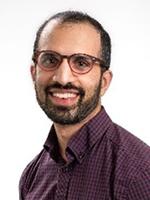 Srinivas Murthy
Srinivas Murthy
Dr. Srinivas Murthy is a critical care and infectious diseases physician and a Clinical Associate Professor at the University of British Columbia. His research investigates the clinical management of emerging pathogens and innovative clinical trial design. He has worked with humanitarian agencies around the world, and chairs clinical guideline and clinical research prioritization committees at the World Health Organization. He is the Health Research Foundation and Innovative Medicines Canada Chair in Pandemic Preparedness Research. He holds an MD from McGill University, a MHsc from UBC, and did his post-graduate clinical training at Harvard University and the University of Toronto.
Members of the Interdepartmental Steering Committee – Global Health (ISC-GH)
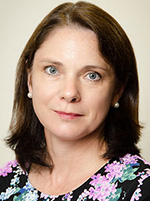 Tammy Clifford
Tammy Clifford
Vice-President, Research Programs, CIHR
Dr. Tammy Clifford provides leadership for the design, development, and administration of CIHR’s funding programs and science policies. As a member of CIHR’s Executive Management Committee, she also works with Governing Council and Scientific Directors to help define and oversee the organization’s strategic directions.
Before joining CIHR, Dr. Clifford was the Chief Scientist and Vice-President, Evidence Standards, at the Canadian Agency for Drugs and Technologies in Health (CADTH), where she served in a number of senior leadership roles over the past decade. At the beginning of her career, Dr. Clifford worked on a number of maternal and child health research projects at CHEO’s Research Institute. Dr. Clifford received her PhD in Epidemiology and Biostatistics from the University of Western Ontario, and her BSc and MSc from McGill University. She is currently an adjunct professor with the School of Epidemiology and Public Health at the University of Ottawa.
 Santiago Alba Corral
Santiago Alba Corral
Vice-President, Programs and Partnerships (IDRC)
Santiago holds an Executive Diploma in Strategy and Innovation from the Said Business School at Oxford University. He completed graduate work, earning a Master's in International Agriculture and Rural Development from Cornell University, USA, prior to which he earned his BS in Agriculture Engineering from the University of La Rioja, Spain.
Santiago has driven numerous strategic initiatives, such as the implementation of IDRC's Strategy 2030 and the design of the CARE International 2020 Program Strategy. Over the past decade, he has held key leadership positions, including Director of Climate-Resilient Food Systems at IDRC, Senior Director of International Development at CARE Canada, and Technical and Research Director at Action Contre la Faim.
His work has spanned a broad spectrum, from humanitarian responses in the Middle East, to land reforms in southern Africa - sexual and reproductive health in Sub-Saharan Africa to nutritional survey capacity building in the West Africa sub-region – and women's economic development and education in East Africa and South Asia to facilitating dialogue between the private sector and Indigenous peoples in Latin America. Across his work Santiago has been a dedicated and consistent advocate for gender equality and sustainability. He has an equally impressive track record of building impactful partnerships and diversifying portfolios.
Santiago's commitment to fostering a collaborative and inclusive work environment aligns well with IDRC's values and culture. His leadership skills have been enriched through managing global teams across Africa, Latin America, the Middle East, and Asia.
Santiago is also well rounded and models work-life balance, spending his personal time sketching comics or faking guitar, cooking, biking in summer, and skiing along the Rideau River in winter.
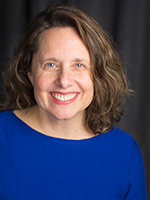 Christine Harmston
Christine Harmston
Chair, ISC-GH and Director General, Office of International Affairs (OIA)
Over the span of her career to date, Christine has accumulated in-depth policy and programmatic experience with public sector organizations, civil society organizations and multilateral bodies in the fields of public health, international development and socio-economic policy and programming. She has been a federal public servant since 2006, working in international health and development domains predominantly at Health Canada and Public Health Agency of Canada, including the Health Portfolio Office of International Affairs (HPOIA). While on spousal relocation leave from the federal government, she worked on contract with the Fogarty International Center at the National Institutes of Health in Bethesda, Maryland (U.S.) from 2012-2014. She re-joined OIA as Director-General in January 2023 after serving as Director-General of the Education Branch at Indigenous Services Canada.
Prior to joining the federal civil service, Christine held various positions over a 10-year span with non-governmental organizations both in Canada and Southeast Asia overseeing human rights and democratic development programming; organizational capacity building; and health humanitarian relief programming in conflict settings.
Christine has a B.A Honours in International Relations (Trent University) and a Masters of Health Science (Faculty of Medicine, University of Toronto). She, her husband and two sons live in Ottawa, unceded territory of the Algonquin Anishinaabe People.
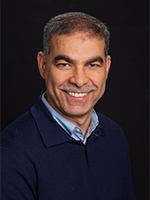 Montasser Kamal
Montasser Kamal
Interim Director, Global Health, IDRC
Montasser is the Interim Director for Global Health at Canada’s International Development Research Centre (IDRC), formerly the Program Leader for Maternal and Child Health, and for Health Research Partnerships. Montasser was the Deputy Director for Global Health Policy and Research at Global Affairs Canada, and Team Leader of Health Specialists, and Manager of Multilateral Health Institutions and Partnerships at CIDA. At the Regional Office of the Ford Foundation in Cairo he supported research, policy, and programming related to sexual and reproductive health and HIV/AIDS. Montasser has MD, Diploma, MSc, and PhD degrees in medicine, international development, and medical anthropology from Egypt, the UK and Canada.
 Jean-Bernard Parenteau
Jean-Bernard Parenteau
Director General, Health and Nutrition Bureau, Global Affairs Canada
Jean-Bernard Parenteau is the Director General for Health and Nutrition at Global Affairs Canada since August 2023, following a four-year assignment overseeing health sector international development funding through Canadian civil society organizations. He joined the Canadian International Development Agency (CIDA) in 1996 and held various positions with development programs covering Ukraine, Russia, and several Central American countries, before being posted to Lima, Peru (2002-2006), where he became the Head of Cooperation (2005-2006). He then successively occupied the positions of Deputy Director for the Tanzania Development Program, and then Director for development programming covering a variety of Sub-Saharan Africa countries (2010-2015): Cameroon, Rwanda, Democratic Republic of Congo, Nigeria, Benin and Burkina Faso. As CIDA and the Department of Foreign Affairs and International Trade became amalgamated to form Global Affairs Canada, Jean-Bernard took on the position of Director of Bilateral Relations for West and Central Africa (2015-2019), with the responsibility for political and trade affairs. He holds a BA (1994) and a Masters degree (1996) in Political Science (International Relations) from Université du Québec à Montréal.
 Sarah Viehbeck
Sarah Viehbeck
Reporting to the President, Dr. Sarah Viehbeck is the Chief Science Officer for the Public Health Agency of Canada (PHAC). In this role, she is responsible for providing strategic leadership to oversee and support science excellence, science-policy integration and science promotion, as well as re-energizing the scientific vision and capacity toward “Strengthening the Voice of Science” across the Agency.
Prior to this, she was the Associate Vice-President Research - Evidence Integration at CIHR. In this role, Dr. Viehbeck was responsible for all science-related strategy and policy development. There, she led the design of a comprehensive suite of programs and initiatives to support CIHR’s mandate, with a priority focus on equity, diversity and inclusion as well as growing and maintaining a strong and sustainable Canadian health research workforce. She also played a key leadership role in the Agency’s COVID-19 response. Dr. Viehbeck previously served as Head of Governance Renewal at the CIHR, leading an agency-wide change and continuous improvement agenda to clarify decision-making processes and structures, and as an Assistant Director for the CIHR-Institute of Population and Public Health where she led numerous domestic and international collaborative efforts to build the fields of population health intervention research and public health ethics. Sarah served as the inaugural co-Chair for both the CIHR External Advisory Committee on Anti-Racism and External Advisory Committee on Accessibility and Systemic Ableism.
Sarah is a former adjunct faculty member at University of Waterloo’s School of Public Health and Health Systems and the University of Ottawa’s Interdisciplinary School of Health Sciences and former Board member of the National Collaborating Centre for Determinants of Health. She has been recognized for her contributions by the Senior Women Academic Administrators of Canada, the Ontario Tobacco Research Unit, the Canadian Public Health Association, and through a CIHR President’s Award of Excellence.
- Date modified: